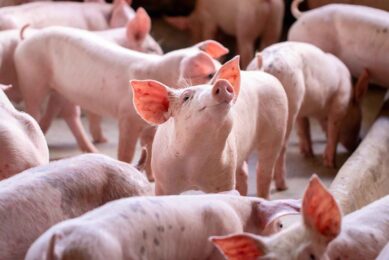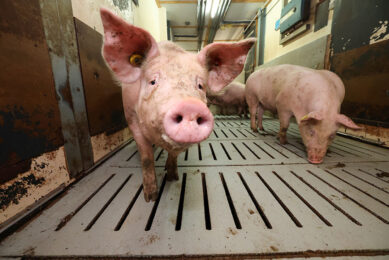Research: Fallen stock disposal, costs could be reduced

Bio-reduction through anaerobic digestion (AD) could provide a viable solution for on-farm storage or disposal of pig carcass material (PCM), according to research at Harper Adams University.
In future, this could reduce the costs of fallen stock collection on some farms, and reduce the movement of vehicles between farms, potentially improving bio-security.
Now a second stage of research has started at the university, jointly funded by DEFRA and BPEX – a division of AHDB, to gather evidence on the efficacy and safety of the process, which may help towards this becoming a reality for farmers.
Initial research established that the AD process could significantly reduce a number of particularly resilient pathogens in PCM, whilst at the same time generating considerable quantities of biogas which could be used to generate heat or electricity. Consequently, AD may potentially be used as a self-sustaining on-farm system for storage or disposal of PCM, reducing the use of fossil fuels.
To be considered by the European Union (EU) as a safe alternative system for disposal of PCM, this research project aims to provide evidence that the on-farm bio-reduction process is equivalent to existing methods of disposal, in relation to both public and animal health.
This evidence will then need to be submitted to the European Food Safety Authority (EFSA) for consideration. A positive outcome and a change in EU regulations will be required before the process can be developed commercially.
Dr Robert Wilkinson, Principal Lecturer and researcher, said: “Following the BSE epidemic in cattle, and other livestock diseases, EU legislation prohibits farmers from burying fallen stock on farm.
“Instead, they must be collected for disposal by approved methods such as incineration or rendering. The development of sustainable on-farm alternatives for storage or disposal of fallen stock could be of significant benefit to the agricultural industry.”
Sue Rabbich, BPEX Environmental Projects Manager, said: “A pig producer questionnaire has revealed that AD was a method of fallen stock disposal that farmers would like to see on farm.”
It is anticipated that this stage of the project, which began in October, will take 18-months to complete.
Source: Harper Adams University
Join 18,000+ subscribers
Subscribe to our newsletter to stay updated about all the need-to-know content in the pigsector, three times a week. Beheer
Beheer










 WP Admin
WP Admin  Bewerk bericht
Bewerk bericht